03
Mar '20

Sound the Alarm
03
Mar '20

If you are like me, whenever you return home from being on vacation, there is a small sense of relief when you pull up to your house and see that it is still standing.
A few years ago, Brenda and I came home from vacation to the sound of the smoke alarm screeching in our house. As we were pulling up the driveway and the garage door was opening, we started to hear a noise coming from the house, but we couldn’t really tell what it was. As we pulled into the garage the noise got more intense. We looked at each other and in unison said, “That’s the smoke detector!”
I ran to the door and felt the doorknob to see if it was hot. It was not. I slowly opened the door expecting smoke to pour out. There was no smoke. I quickly went through the house looking for a reason for the shrieking alarm. Everything looked OK – no smoke, no fire. We got a ladder and went from smoke detector to smoke detector to figure out which one had been triggered so we could silence the alarm.
We have no idea how long the alarm had been sounding. It was wired into the household electric current, so it was not dependent on battery power. It could have been going for days. Upon inspection, it was determined that “cobwebs” had triggered the mechanism, and all the smoke detectors got a thorough cleaning.
There is an urgency to the blaring of an alarm. Alarms are meant to get our attention, to wake us up, to cause us to act quickly. The image of an alarm is often part of the observance of Ash Wednesday and Lent. We often read from the prophet Joel on Ash Wednesday, as he conveys this sense of urgency and calls upon the people to sound an alarm:
Blow the trumpet in Zion;
Sound the alarm on my holy mountain!
Let all the inhabitants of the land tremble,
For the day of the LORD is coming, it is near. (Joel 2:1)
Sound the alarm on my holy mountain!
Let all the inhabitants of the land tremble,
For the day of the LORD is coming, it is near. (Joel 2:1)
The season of Lent should carry with it a sense of urgency. It is meant to be a wake-up call for our spiritual lives. Quite honestly, it is spiritually dangerous for us to ignore the Lenten call of self-examination and repentance. Complacency within our spiritual lives breeds self-righteousness.
This year, our time together during Lent will focus on the book, “The God We Can Know,” by Rob Fuquay. Our Sunday morning sermons and our small groups will follow the book as we explore the “I Am” sayings of Jesus. Together, we will explore what it means about Jesus, and what it means for us, when Jesus said, “I Am…the Bread of Life, the Light of the World; the Good Shepherd; the True Vine; the Way, the Truth, and the life; and the Resurrection and the Life.
Join us as we heed the call of the prophet to draw nearer to God this Lenten season.
–Jay
